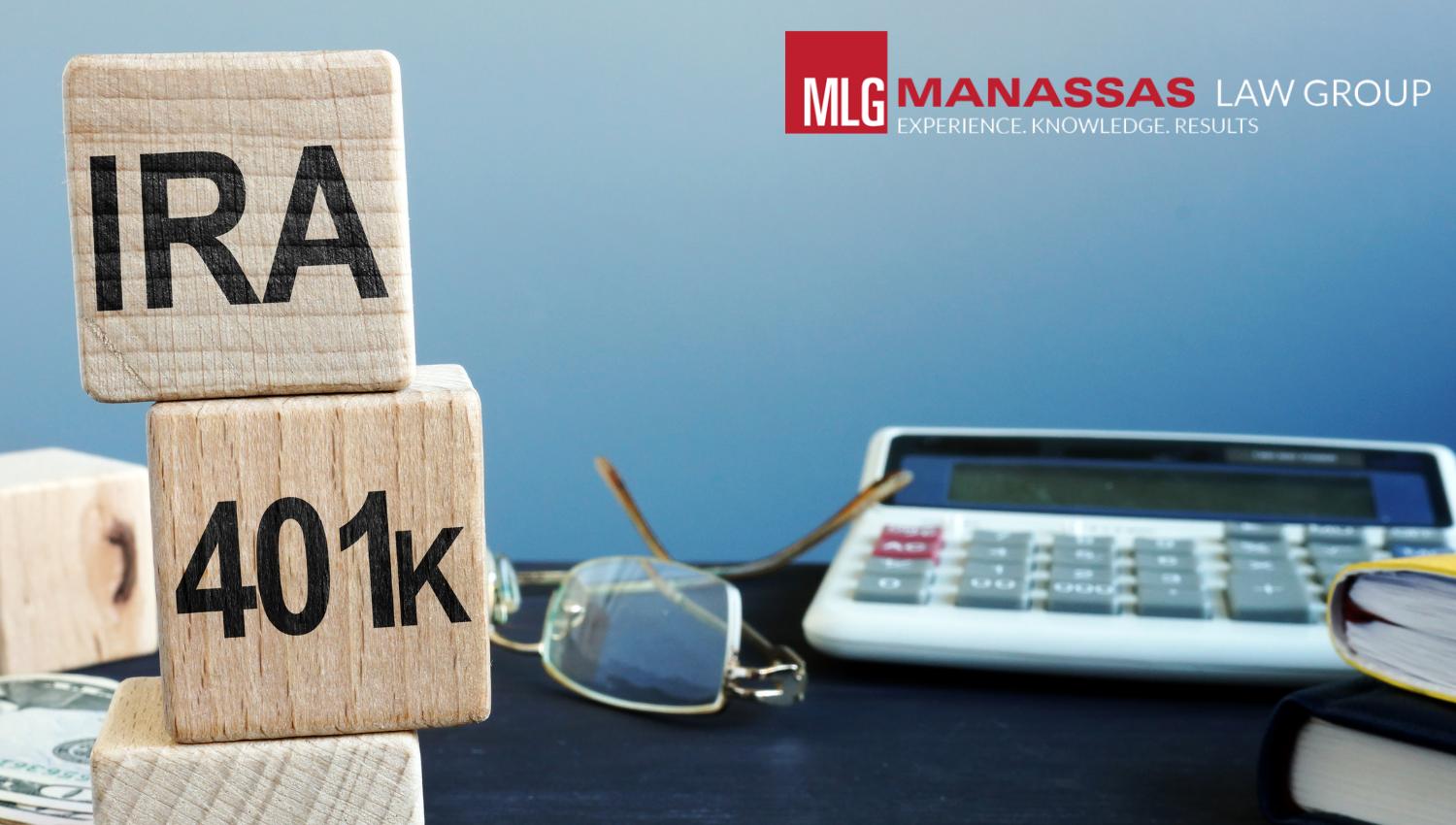IRAs and 401k retirement assets can pose some challenges in estates due to the tax-related rules that apply to these types of assets. In this post, our Manassas estate planning attorneys at Manassas Law Group briefly explain IRAs and 401ks in estates.
IRAs vs. 401ks
IRAs and 401k have similar rules with respect to the determination of who receives them when the account holder dies.
The first question concerns whether the account holder listed a beneficiary to receive the account. If a beneficiary is named and survives the account holder, then the account passes to the named beneficiary and is not controlled by the Will.
The beneficiary can delay taking the distribution from the account for up to 10 years unless the beneficiary is the surviving spouse or minor child in which case the withdrawals of money can be stretched out for much longer.
If no beneficiary is listed by the account holder, the account passes to the heirs of the account holder and the distributions must be taken out within 5 years.
The distributions taken by the named beneficiary(ies) or heir in the case of no named beneficiaries are taxable upon withdrawal as ordinary income. However, if the IRA is Roth IRA, the named beneficiary will not pay tax on his/her withdrawals from the IRA account.
If the IRA or 401k account holder prior to passing had reached the age where required minimum distributions must be taken from the account, then the RMDs must continue to be taken up until the account is liquidated pursuant to the applicable 10-year or 5-year payout.
Call the Manassas Estate Planning Attorneys at MLG Today
To learn more about IRAs and 401ks in regard to estate planning, give our experienced estate planning attorneys a call at (703) 361-8246 or reach out to us online today.















